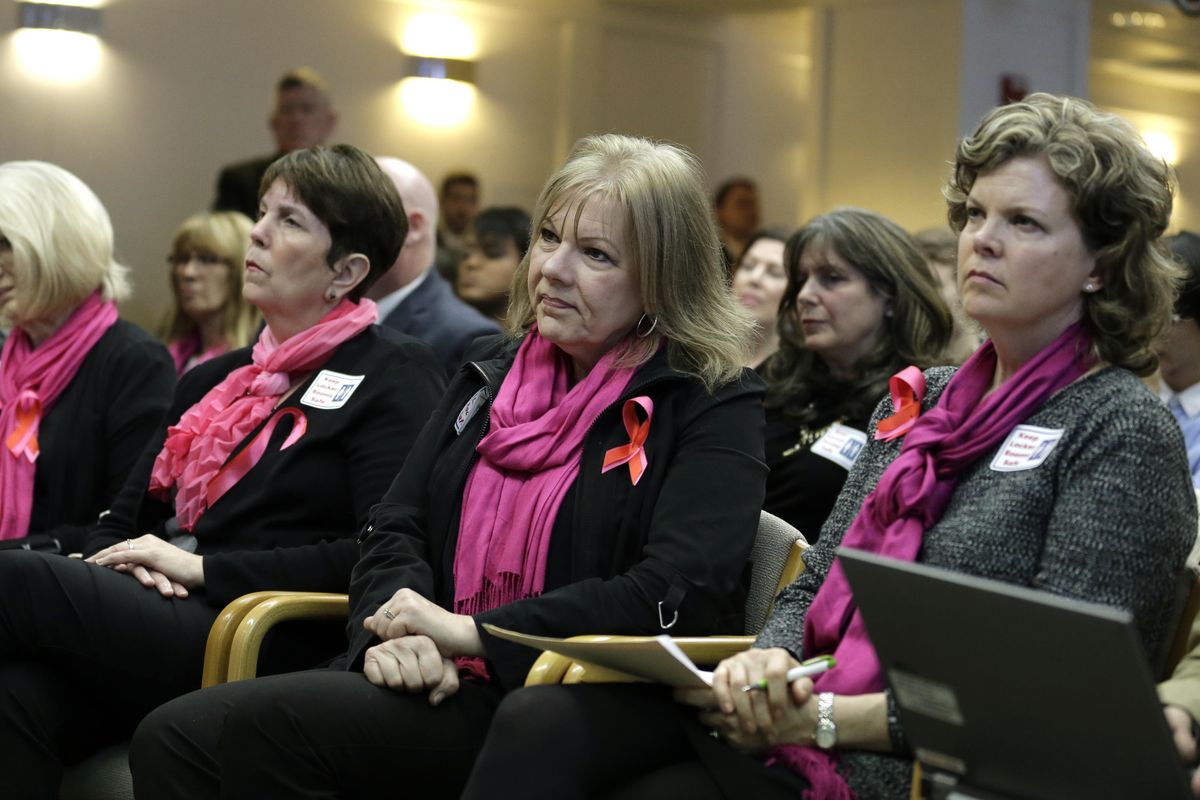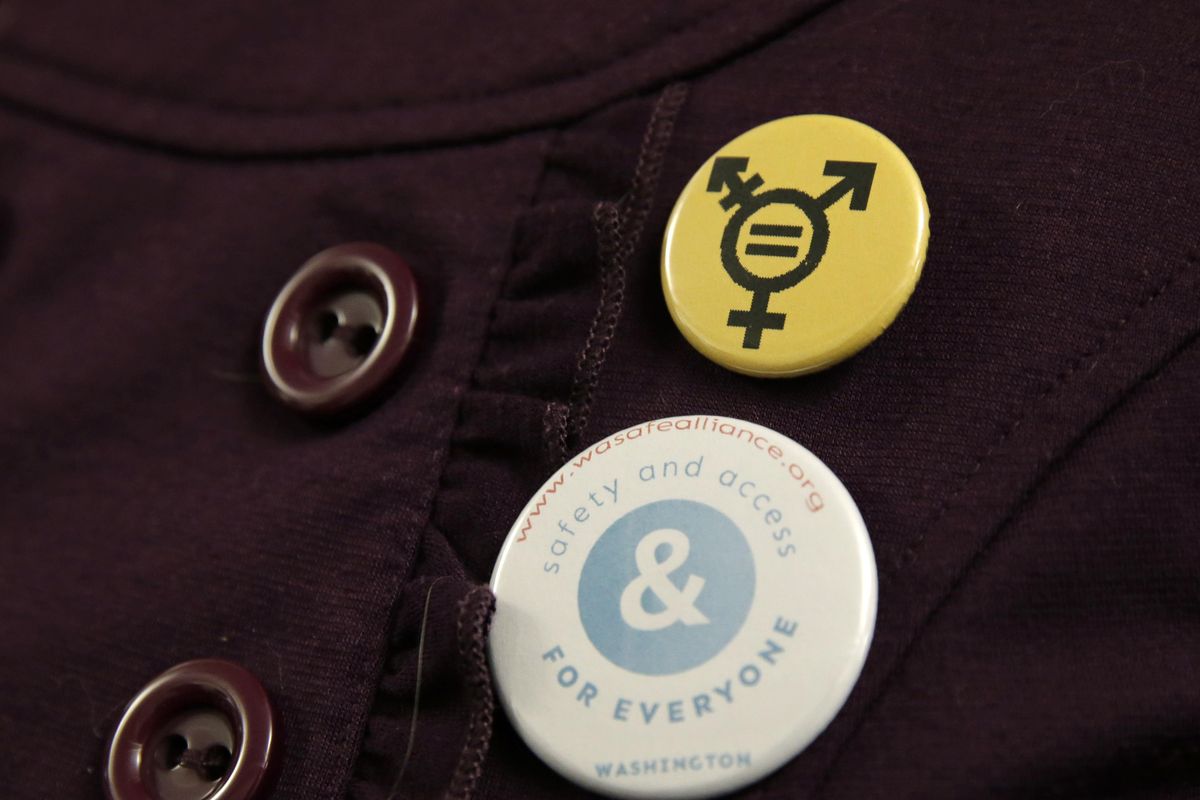Access to restrooms based on gender identity stirs debate in Olympia
A group of people supporting a bill that would eliminate Washington’s rule allowing transgender people use gender-segregated bathrooms and locker rooms in public buildings consistent with their gender identity listen to testimony during a public hearing, Wednesday, Jan. 27, 2016, in a Washington Senate hearing room at the Capitol in Olympia. (Ted S. Warren / Associated Press)
OLYMPIA – A state rule that allows people in Washington to select a restroom based on their gender identity protects transgender people from harassment, supporters of the rule told a Senate committee Wednesday.
At the same meeting, opponents of the rule said it endangers women and children by allowing sexual predators access to potential victims.
The Senate Commerce and Labor Committee waded into one of the hot-button topics of the 2016 session: restrooms. After a packed hearing with passionate arguments on both sides, the panel voted 4-3 to send the bill to the full Senate for a possible debate and vote.
The bill would order the Human Rights Commission to repeal a recent rule allowing any person to use restrooms or locker rooms based on their gender identity, regardless of their anatomy. That practice had been common in some parts of Washington for nine years.
The bill also would ban the commission from making any new rule that “involves the subject of gender-segregated facilities.”
The hearing drew 300 people wishing to testify, the most Chairman Mike Baumgartner, R-Spokane, said he could remember. But only a fraction got to speak in the 45 minutes set aside for the bill.
Conservatives oppose the rule as government overreach by an unelected board into a personal matter. Some worry that sexual predators will claim to be transgender to use an opposite-sex bathroom, endangering women or girls, and the rule doesn’t allow a person’s bathroom selection to be challenged.
“My government has overreached into my private space,” Autumn Bennett told the committee. The unelected commissioners – members are appointed by the governor and confirmed by the Senate – “do not represent me,” she said.
Hannah Jaber, a Pierce County teen, said changing in the high school locker room is awkward enough. “When I’m undressing I don’t want to see body parts of a person of the opposite sex.”
Gender-equity advocates support the rule as a basic human right. A predator can be challenged for bad behavior or harassment, regardless of a false claim on gender identity, they said.
“I do not want my child to be harassed,” said Betsy White, a Spokane mother of an 8-year-old transgender daughter who has been bullied at school. “My daughter has the right to live without fear.”
White said she agreed that safety is important, but transgender people are the ones who need to be protected because statistics show they are far more likely to be harassed, attacked or sexually assaulted.
Pastor Jan Shannon, assistant pastor at Westminster United Church of Christ, where she has about 10 transgender people in the congregation, accompanied White and several others from Spokane to the hearing. Shannon didn’t get a chance to testify but said later if she did, her remarks would have included a call for both sides to talk.
“We do need to communicate,” Shannon said later. “We all want a world where people can live together.”
The three Democrats who voted against the bill likened the issue to civil rights struggles in the 1960s. Sen. Bob Hasegawa of Seattle suggested opponents substitute “black” for “transgender” in the rule and see if that changed their mind.
“Social change, when we’re struggling with civil rights, is difficult. But this is absolutely the right thing to do,” he said.
But Sen. Judy Warnick, R-Moses Lake, argued it was different than a question of a person of a different color in a bathroom for that gender. It’s about people afraid to use a bathroom, and the rule affects their rights, she said.
Baumgartner said everybody’s rights deserve protection, but the best way to do that might be on a case-by-case basis rather than a statewide rule. Based on what he called “the immense public interest,” the issue should at least get a debate by the full Senate, and possibly become the subject of a state initiative.
The bill was sent to the Rules Committee, which schedules legislation for the Senate floor.

